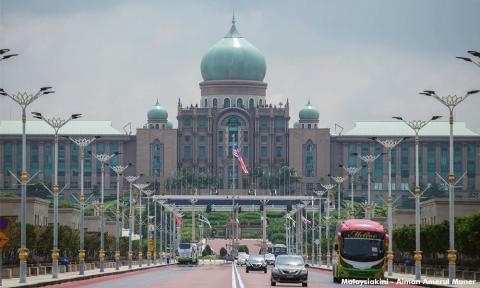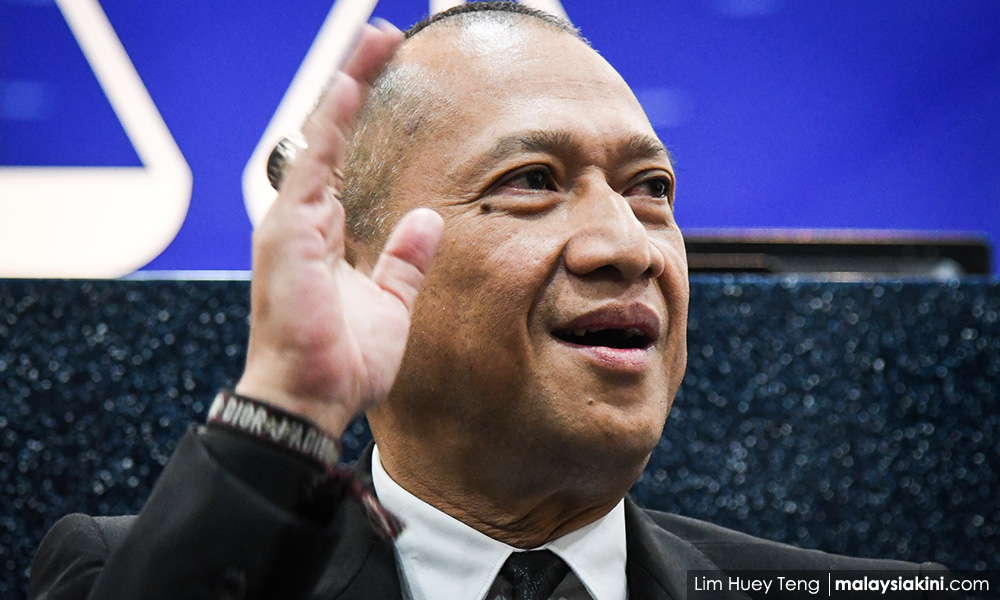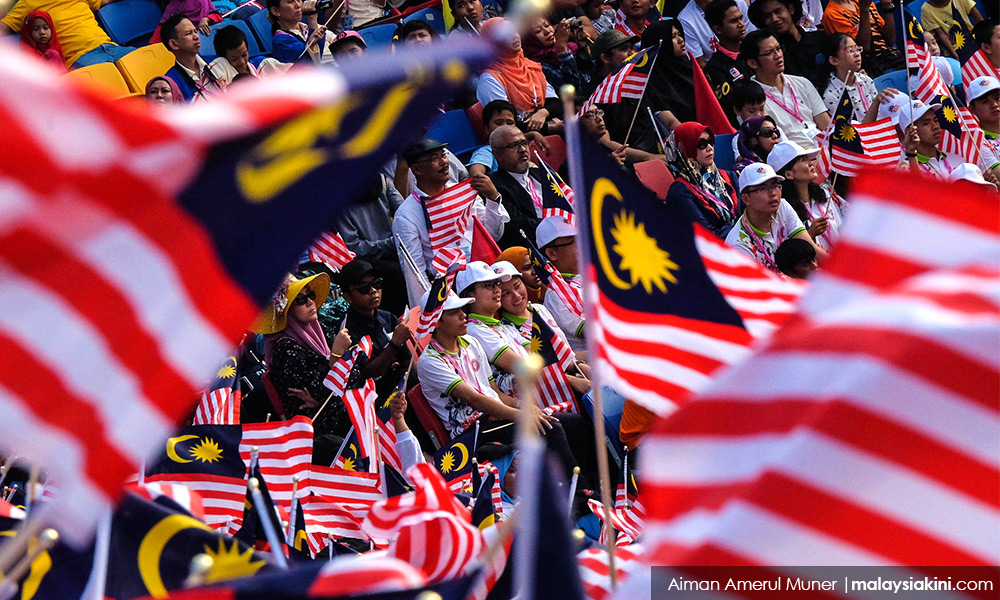
For many years, Malaysiakini columnists have been writing on the need to transcend racial politics in the country. At times it feels like a lost cause. We’re ploughing the same field, but seldom do we break any new ground.
Rarely, I think, do our written words echo in Putrajaya. Regardless, we continue to write. As I wrote soon after Pakatan Harapan was elected - could the regime change be likened to shuffling a deck of new cards but dealing in the same old politics of racial differentiation?
What I hoped would not transpire was Harapan’s metamorphosis into an old Umno. Unfortunately, after less than a year in government, Harapan is turning, as evident in Dr Mahathir Mahathir’s remark that the election was not “merely about seeking victory for a political party but to redeem the pride of the (Malay) race”.
Harapan and the Umno-PAS opposition are manifestly racing the country to the ground, each respectively flying the flag ‘Untuk agama, bangsa dan negara’.
Instead of taking the country forward with fundamental reforms and progressive race-neutral policies, both the incumbent and opposition are steeped on “redeeming the pride of the Malay race”.

This was noticeable in BN’s secretary-general, Nazri Abdul Aziz’s recent statement on the Umno-PAS alliance that “for the sake of political survival”, he would “now prioritise Malays and Islam first, before the diversity of races".
What beggars belief is the stupidity of Nazri’s racialised statement. Malays today account for 69 percent of the population. The numerical, religious and political dominance of the Malays over non-Malays exposes Nazri’s utterly absurd racial slur.
A friend and columnist, Mustafa K Anuar wrote that there are many such “Nazris” in Malaysian politics, alluding to the former minister’s remarks on vernacular schools and appointments of a non-Malay attorney-general, chief justice and finance minister.
Mustafa said that “a forward-looking, robust and inclusive Malaysia should no longer welcome the tired politicisation of race and religion that has dragged the country far too long behind other countries on the economic, political, educational, social and cultural fronts”.
Likewise, Singapore’s former minister in charge-of Muslim affairs, Yaacob Ibrahim, said at a conference on 'Islam in the Contemporary World' that “the Malay-Muslim community (in Singapore) has a duty to learn about other cultures, religions and societies so that a consensus on finding the best solutions could be reached”.
Indeed, cross-cultural literacy and inter-religious understanding apply to all peoples co-existing in multiethnic communities. The needling question is when will fair and equal opportunities for every Malaysian be guaranteed by law?
When will special privileges end and self-reliance begin?
AB Sulaiman, whom I met in Kuala Lumpur in 2013 to discuss his book, Sensitive Truths about Malaysia: A Critical Appraisal of the Malay Problem (2013), had observed that “while preferential policies have benefitted the Malays, continuing it indefinitely will dampen and weaken any sense of competition in the individual spirit”.
The Ketuanan Melayu ideology, he reasoned, had created an “archaic mentality” and “sets of encumbrances, psychological insecurities… inherent in the ethnocentric collective Malay mind”.
I am here reminded of The End of Racism – Principles for a Multicultural Society (1995) by Dinesh D’Souza, a professed conservative of Indian origin and ardent Trump supporter.
He argued that redeeming past wrongs with affirmative action to redress racial economic disparities had nurtured a “dysfunctional Afro-American society” steeped in the victim syndrome. The consequence? A blaming culture.
The End of Racism posits that Afro-Americans have effectively “developed a culture that was an adaptation to historical oppression but is, in several important aspects, dysfunctional today”.
D’Souza pointed out that high African-American crime rates, for instance, have the effect of legitimising “rational discrimination” (discretion) based on experience as opposed to “racial discrimination” (prejudice) perpetuated by ignorance and imagined fear.
In short, Afro-Americans need to destroy the “empirical foundation”, which forms the basis for “rational discrimination” by whites against blacks. In other words, give the whites no reason to stereotype the blacks. This they can do by taking up the “leadership role in a project of cultural renewal” apart from over-relying on “affirmative action” to move ahead.
D’Souza has unsurprisingly attracted criticisms from the left-liberal thinkers.
I can certainly see the moral grounds for affirmative action to redress past injustices and oppression of ethnic minority groups.

In our Malaysian story, however, has it been more a case of “rational discrimination” than crass racism per se between the Malays and non-Malays?
Is the experience, though anecdotal, of the Malays being screwed by the "inscrutable" Chinese in business dealings, and the Chinese being disadvantaged by the "indolent" Malay privileges reinforcing the “rational discrimination” that the Malay and Chinese hold of each other?
Transcending entrenched racial stereotypes is hard, but necessary. Adults must cease reinforcing old ways of thinking in their young ones – the new generation who can one day make a difference.
Adults, who should know better, need to actively indulge in more inter-racial contacts via real conversations between neighbours, among work colleagues, between politicians and their constituents.
We must resist the stoking of inter-racial anxiety and prejudice by the Nazris, Najibs, Hadis and Ibrahim Alis. “Let no one from other races ever question the rights of Malays on this land,” should be forever trashed to the garbage bin.
Likewise its counter: “We, Chinese and Indians, have a right to be here because we have helped developed the country to what it is today.”
Are our public figures, with few exceptions that stupid and irredeemably vile to demonise another ethno-religious group just to remain in power to benefit themselves, their family and their cronies?
One day soon, I hope we will find common ground for constructive conversations about race and religion, and pave the way for racialised mindsets to gradually change for the better. - Mkini



No comments:
Post a Comment
Note: Only a member of this blog may post a comment.